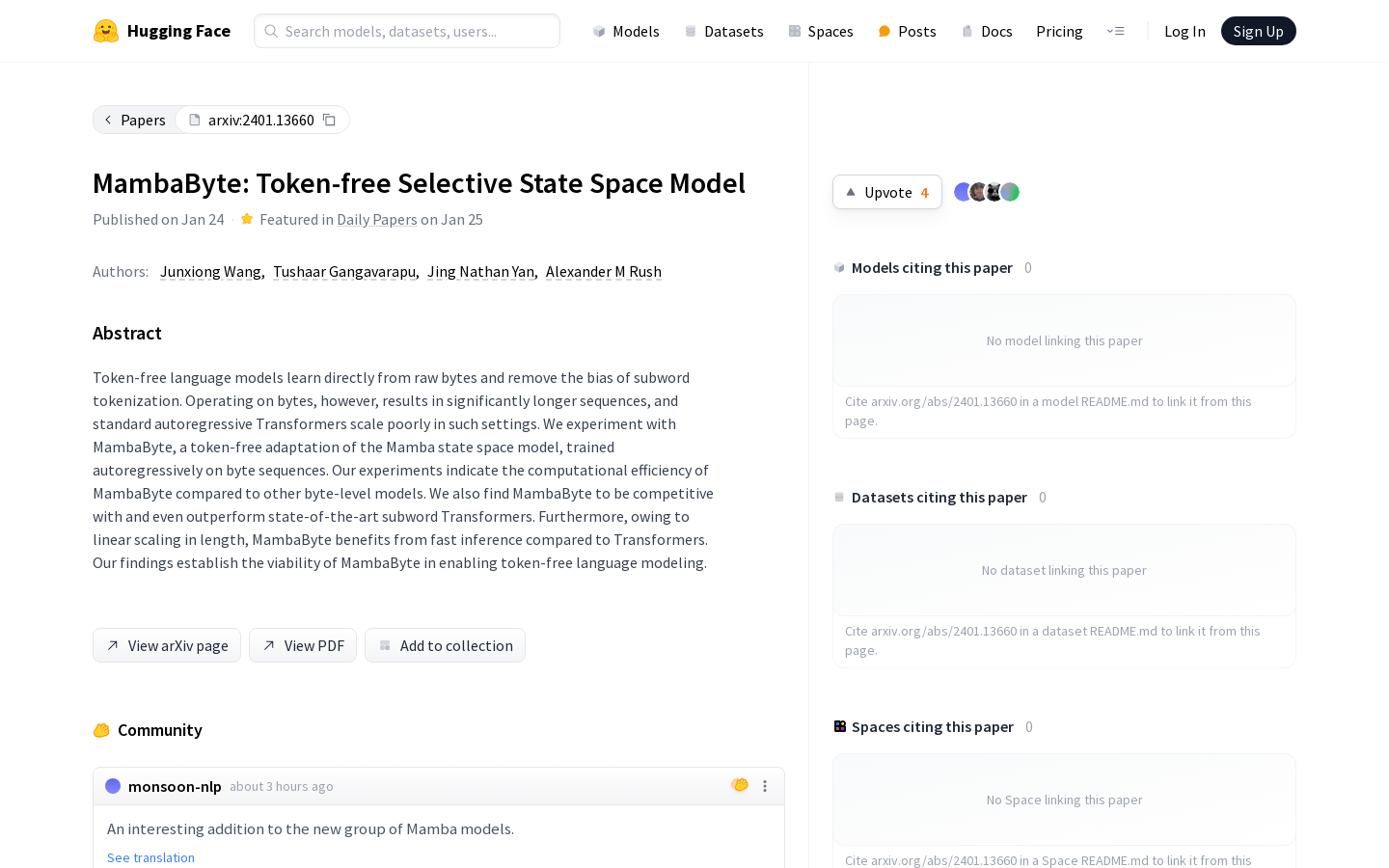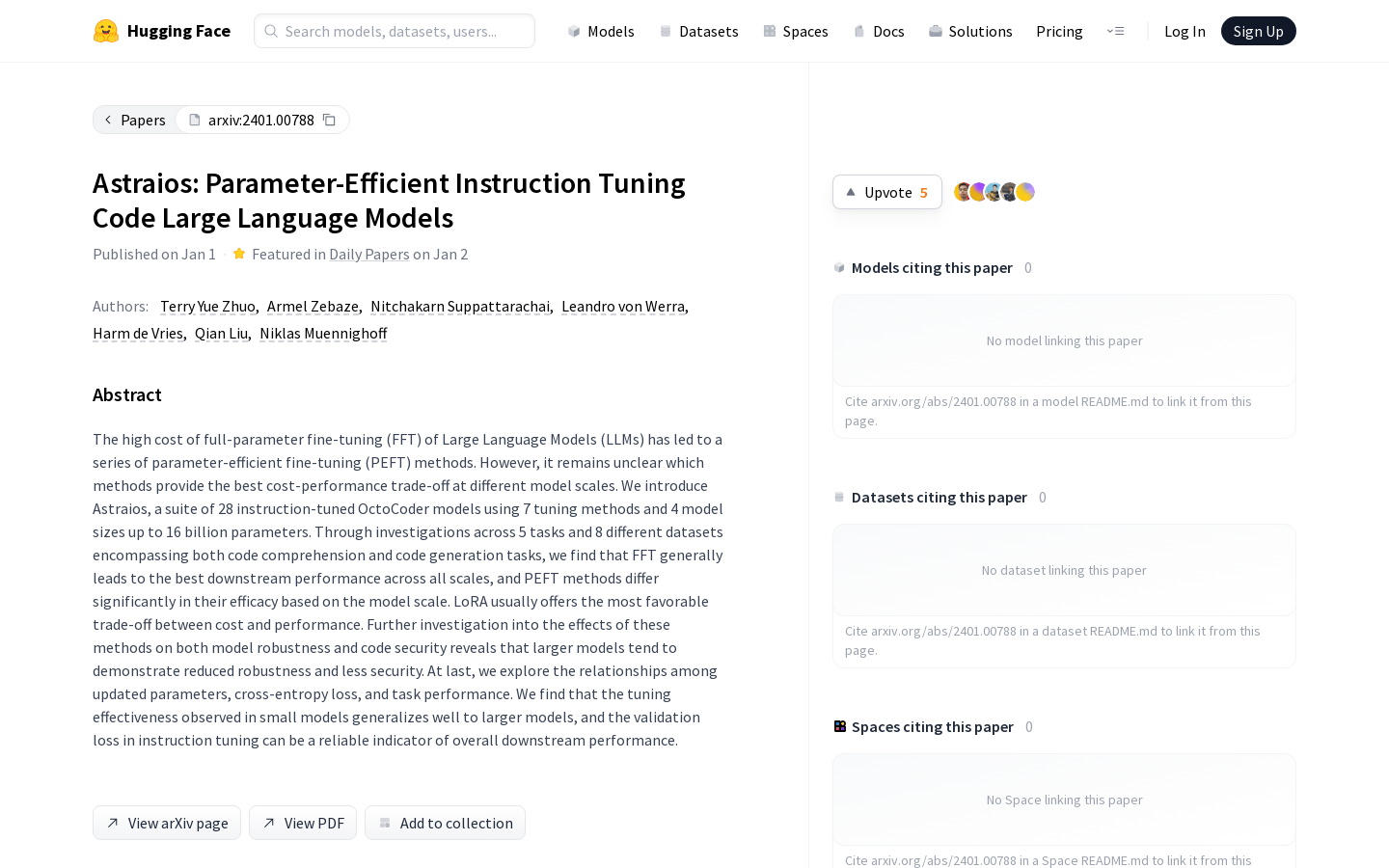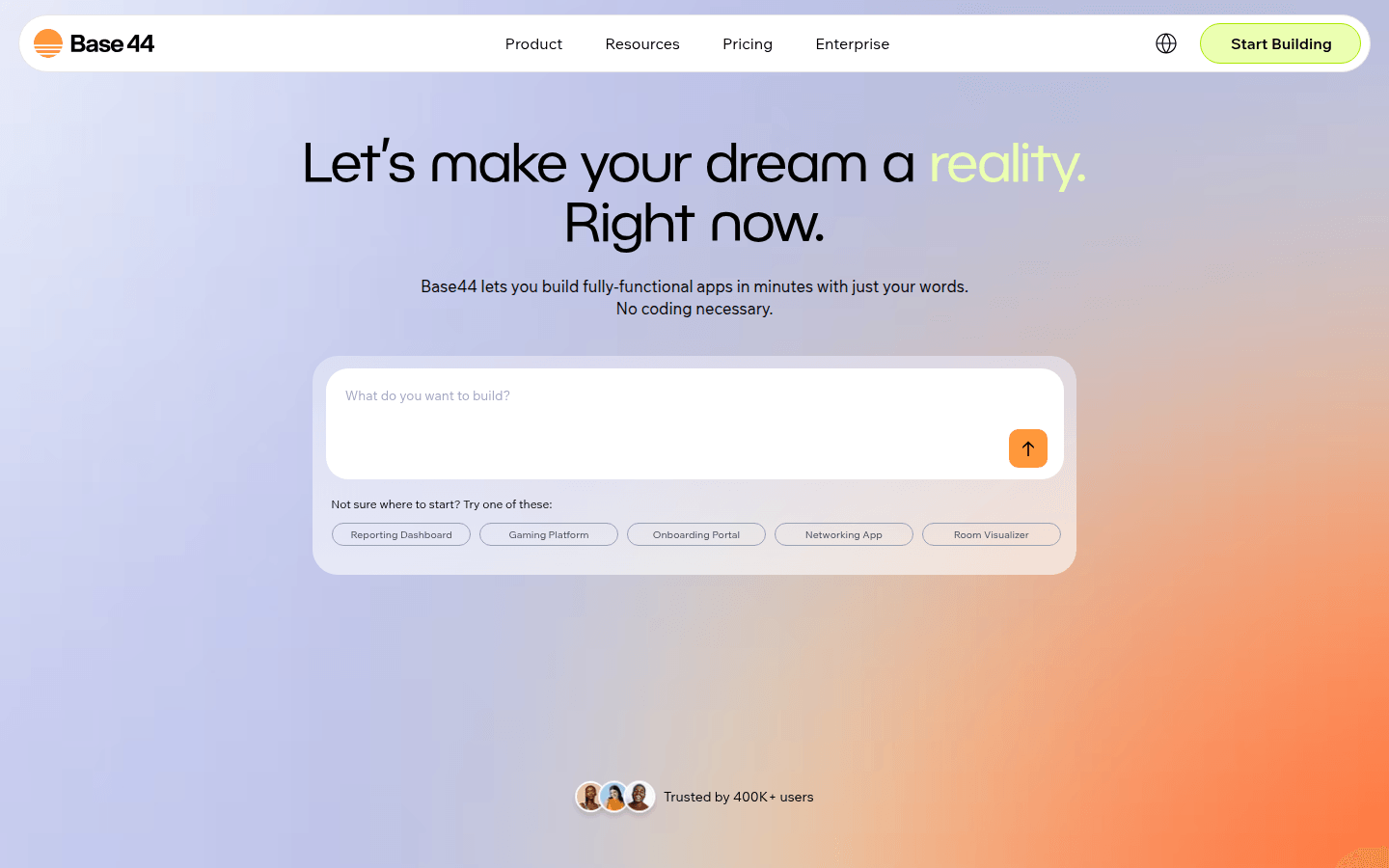AutoMathText
Mathematics Text Smart Labeling Dataset

Product Details
AutoMathText is an extensive and carefully curated dataset containing approximately 200GB of mathematical text. Each piece of content in the dataset is independently selected and scored by Qwen, the most advanced open source language model, ensuring high standards of relevance and quality. This dataset is particularly suitable for promoting advanced research at the intersection of mathematics and artificial intelligence, as an educational tool for learning and teaching complex mathematical concepts, and as a basis for developing and training AI models that specifically process and understand mathematical content.
Main Features
Target Users
Conduct academic research in the field of mathematics
Paraeducators teach math courses better
Train a machine learning model to process mathematical text
Examples
Researchers can use this data set to conduct cutting-edge cross-field research such as mathematical representation learning.
Teachers can mine content in data sets to help students learn abstract mathematical concepts
Data scientists can pre-train mathematical text processing models based on this dataset
Quick Access
Visit Website →Categories
Related Recommendations
Discover more similar quality AI tools

Intel Core Ultra Desktop Processors
Intel® Core™ Extreme 200 Series Desktop Processors are the first AI PC processors for desktop platforms, bringing enthusiasts an excellent gaming experience and industry-leading computing performance while significantly reducing power consumption. These processors feature up to eight next-generation performance cores (P-cores) and up to 16 next-generation energy efficiency cores (E-cores), delivering up to 14% performance improvements in multi-threaded workloads compared to the previous generation. These processors are the first desktop processors to feature a Neural Processing Unit (NPU) for enthusiasts with built-in Xe GPU to support the most advanced media capabilities.

DataGemma
DataGemma is the world's first open model designed to help solve the problem of AI hallucinations through massive amounts of real-world statistics from Google's data sharing platform. These models enhance the factuality and reasoning capabilities of the language model through two different methods, thereby reducing hallucinations and improving the accuracy and reliability of AI. The launch of the DataGemma model is an important advancement in AI technology in improving data accuracy and reducing the spread of misinformation. It is of great significance to researchers, policymakers, and ordinary users.

HumanPlus
HumanPlus is a research project aimed at training humanoid robots to achieve autonomous skill learning by imitating human movements. This project trains low-level policies through simulated reinforcement learning and applies these policies to the real world to achieve real-time tracking of human body and hand movements. Through shadow simulation technology, operators can remotely operate the robot to collect whole-body data for learning different tasks. In addition, through behavioral cloning technology, robots can imitate human skills and complete various tasks.

MambaByte
Mamba Bytes is a token-free language model that learns directly from raw bytes, eliminating the bias of sub-word tokenization. It operates on bytes, but results in significantly longer sequences, and the standard autoregressive Transformer scales poorly in this case. We autoregressively trained Mamba bytes on byte sequences, which is a label-free adaptation of the Mamba state space model. Our experiments show that Mambabytes is computationally efficient compared to other byte-level models. We also found that Mambabyte performs well against and even exceeds the performance of the state-of-the-art Subword Transformer. Furthermore, MambaByte has faster speed than Transformer during inference due to the linear expansion of length. Our findings confirm the feasibility of mambabytes in enabling markup-free language modeling.

BiTA
BiTA is a bidirectional tuning method for large language models that accelerates large language models through simplified semi-autoregressive generation and draft verification. As a lightweight plug-in module, BiTA can seamlessly improve the inference efficiency of existing large language models without requiring additional auxiliary models or incurring significant additional memory costs. After applying BiTA, LLaMA-2-70B-Chat achieved a 2.7x acceleration on the MT-Bench benchmark. Extensive experiments confirm that our approach surpasses state-of-the-art acceleration techniques.

E^2-LLM
E^2-LLM is an efficient and extremely extended large language model method. It achieves effective support for long context tasks by requiring only one training process and greatly reducing computational costs. This method adopts RoPE position embedding and introduces two different enhancement methods aimed at making the model more robust during inference. Comprehensive experimental results on multiple benchmark datasets demonstrate the effectiveness of E^2-LLM on challenging long context tasks.

Efficient LLM
This is an efficient LLM inference solution implemented on Intel GPUs. By simplifying the LLM decoder layer, using a segmented KV caching strategy and a custom Scaled-Dot-Product-Attention kernel, the solution achieves up to 7x lower token latency and 27x higher throughput on Intel GPUs compared to the standard HuggingFace implementation. Please refer to the official website for detailed functions, advantages, pricing and positioning information.

Astraios
Astraios is a platform that provides fine-tuning for large language models. It provides efficient fine-tuning methods with multiple parameters and model selections of various sizes. Users can fine-tune large-scale language models on this platform and obtain the best cost-performance balance. The platform also provides a wealth of models, data sets and documents to facilitate users to conduct related research and development. Pricing is flexible and suitable for user needs of different sizes.

Meta 4 WCS AI
Meta 4 WCS AI is a similarity engine based on Intel TF-iDF, which can provide users with key debugging information to help optimize business processes.

Mixboard
Mixboard is an innovative AI tool designed to help users with concept development and creative expansion. It allows users to explore, expand and refine ideas through an AI-powered interface for designers, creatives and teamwork. The tool is seamlessly integrated, easy to use, and suitable for all types of users, whether individuals or teams can benefit from it.

AstroChart.ai
AstroChart.ai is an artificial intelligence platform that provides personalized horoscope and birth chart readings. By integrating traditions such as Western astrology, Indian astrology, Chinese astrology and body design, it helps users gain a deeper understanding of their own cosmic journey.

Brooke & Jubal in the Morning
Brooke and Jubal Update is a website that tells the complete story of radio morning duo Brooke and Jubal, telling their split, personal moves, and current activities. The website presents the story of this well-known morning duo in the broadcast industry by introducing in detail the past, current situation and important program clips of the two hosts.

SpatialChat
SpatialChat is an AI-driven event and webinar platform designed to increase engagement, increase interactivity, and provide a seamless virtual experience. The main advantages of this platform include powerful AI technology support, rich functions, strong customizability, multiple integration options, etc.

Base44
Base44 is a platform for quickly building apps without coding or setup. It provides powerful tools and functions to help users easily transform ideas into practical applications without complex technical knowledge and programming experience.

Destiny Matrix Chart Calculator
Matrix Destiny Chart is a powerful system that combines numerology, tarot, archetypes and energy work to reveal your soul's journey and reveal your strengths, challenges and purpose. It calculates a personalized matrix to reveal 22 key locations representing different aspects of your life, from your core essence to relationships, career paths and spiritual growth.